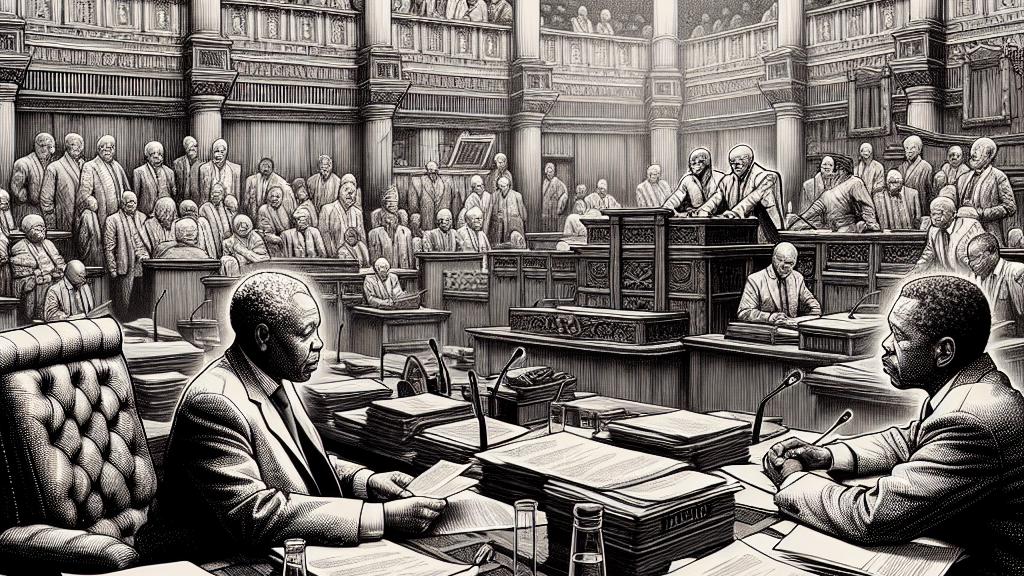State Capture Saga: The MK Party Welcomes Its Controversial MPs!
Overview
- Former state capture suspects Brian Molefe and Siyabonga Gama appointed as MPs in South Africa's MK party.
- The appointments highlight ongoing issues of corruption and cronyism within South African politics.
- Opposition parties condemn the undermining of democratic processes through controversial candidate changes.

A Shocking Political Shift in South Africa
In a surprising and controversial move, the uMkhonto weSizwe (MK) party in South Africa has appointed former state capture suspects Brian Molefe and Siyabonga Gama as Members of Parliament (MPs). Both individuals have faced serious scrutiny due to their involvement in corruption scandals during Jacob Zuma's presidency. Their ascension to power starkly contrasts with the party's historical roots, which advocated for justice and equality, raising alarm bells about the potential return to practices of cronyism that have marred South Africa's political landscape. This appointment signals a significant shift, as the MK party attempts to redefine its identity within a fractured political environment.
Corruption Allegations and Public Outrage Intensify
The backdrop of these appointments showcases a troubling narrative of corruption and abuse of power. The Zondo Commission's investigation highlighted extensive wrongdoing during the Zuma era, pinpointing Molefe and Gama as central figures in a web of corruption involving inflated contracts and illegal dealings. With Molefe facing charges of fraud and money laundering, public outrage has understandably surged. Many South Africans feel that allowing such figures into Parliament erodes the hard-won integrity of democratic institutions. Citizens are questioning whether their leaders genuinely prioritize public welfare or merely seek to enrich themselves, further fueling discontent with the political establishment.
The Erosion of Democratic Representation Raises Concerns
Critics argue that the MK party's decision to amend its candidate list undermines the very principles of democratic representation. By appointing individuals previously excluded from the electoral roster, voters are left feeling betrayed and deceived. Opposition parties, especially the Democratic Alliance, are vocal in their condemnation, asserting that these actions constitute a fundamental breach of trust with the electorate. As former President Zuma argues for his support of the MK party, the implications are broad and serious. This political maneuvering not only threatens the integrity of South Africa's democratic processes but also risks alienating a disillusioned populace ready for real change. The road ahead will require a renewed commitment to transparency and accountability to reclaim public trust.

Loading...